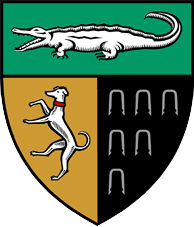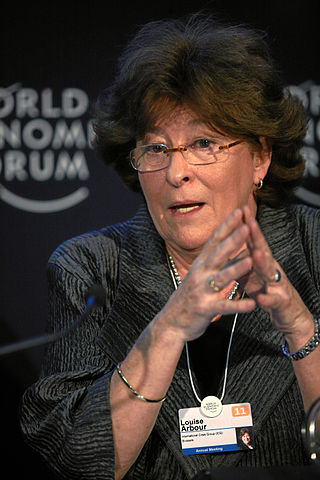Related Research Articles

A lawyer is a person who is qualified to offer advice about the law, draft legal documents, or represent individuals in legal matters.

A Juris Doctor, Doctor of Jurisprudence, or Doctor of Law (JD) is a graduate-entry professional degree that primarily prepares individuals to practice law. In the United States, it is the only qualifying law degree. Other jurisdictions, such as Australia, Canada, and Hong Kong, offer both the postgraduate JD degree as well as the undergraduate LL.B., BCL, or other qualifying law degree depending on the requirements of the jurisdiction where the person will practice law.

Harvard Law School (HLS) is the law school of Harvard University, a private research university in Cambridge, Massachusetts. Founded in 1817, Harvard Law School is the oldest law school in continuous operation in the United States.

A law school in the United States is an educational institution where students obtain a professional education in law after first obtaining an undergraduate degree.

Stanford Law School (SLS) is the law school of Stanford University, a private research university near Palo Alto, California. Established in 1893, Stanford Law had an acceptance rate of 6.28% in 2021, the second-lowest of any law school in the country. George Triantis currently serves as Dean.

Yale Law School (YLS) is the law school of Yale University, a private research university in New Haven, Connecticut. It was established in 1824. The 2020–21 acceptance rate was 4%, the lowest of any law school in the United States. Its yield rate of 87% is also consistently the highest of any law school in the United States.

The Georgetown University Law Center is the law school of Georgetown University, a private research university in Washington, D.C., United States. It was established in 1870 and is the largest law school in the United States by enrollment, with over 2,000 students. It frequently receives the most full-time applications of any law school in the United States.

Vanderbilt University Law School is the law school of Vanderbilt University. Established in 1874, it is one of the oldest law schools in the southern United States. Vanderbilt Law enrolls approximately 640 students, with each entering Juris Doctor class consisting of approximately 175 students.

A law school is an institution, professional school, or department of a college or university specializing in legal education, usually involved as part of a process for becoming a judge, lawyer, or other legal professional within a given jurisdiction. Depending on the country, legal system, or desired qualifications, the coursework is undertaken at undergraduate, graduate, or both levels.
The University of Texas School of Law is the law school of the University of Texas at Austin, a public research university in Austin, Texas. According to Texas Law’s ABA disclosures, 87.20% of the Class of 2022 obtained full-time, long-term bar passage required employment nine months after graduation.

Fordham University School of Law is the law school of Fordham University. The school is located in Manhattan in New York City, and is one of eight ABA-approved law schools in that city. In 2013, 91% of the law school's first-time test takers passed the bar exam, placing the law schools' graduates as fifth-best at passing the New York bar exam among New York's 15 law schools.
A professional degree, formerly known in the US as a first professional degree, is a degree that prepares someone to work in a particular profession, practice, or industry sector often meeting the academic requirements for licensure or accreditation. Professional degrees may be either graduate or undergraduate entry, depending on the profession concerned and the country, and may be classified as bachelor's, master's, or doctoral degrees. For a variety of reasons, professional degrees may bear the name of a different level of qualification from their classification in qualifications, e.g., some UK professional degrees are named bachelor's but are at master's level, while some Australian and Canadian professional degrees have the name "doctor" but are classified as master's or bachelor's degrees.
Legal advertising is advertising by lawyers (attorneys), solicitors and law firms. Legal marketing is a broader term referring to advertising and other practices, including client relations, social media, and public relations. It's a type of marketing undertaken by law firms, lawyers (attorneys) and solicitors that aims to promote the services of law firms and increase their brand awareness.
Eleanor Swift,October 16, 1945 - September 20, 2023, was a professor at the University of California, Berkeley School of Law. She was best known for her work on the theory of evidence, and additionally taught civil procedure, the legal profession, and periodic seminars.

Deborah Lynn Rhode was an American jurist. She was the Ernest W. McFarland Professor of Law at Stanford Law School and the nation's most frequently cited scholar in legal ethics. From her early days at Yale Law School, her work revolved around questions of injustice in the practice of law and the challenges of identifying and redressing it. Rhode founded and led several research centers at Stanford devoted to these issues, including its Center on the Legal Profession, Center on Ethics and Program in Law and Social Entrepreneurship; she also led the Michelle R. Clayman Institute for Gender Research at Stanford. She coined the term "The 'No-Problem' Problem".
The National Board of Trial Advocacy (NBTA) is a non-profit board certification organization in the United States which administers eight national board certification programs for attorneys in Civil Trial Law, Criminal Trial Law, Truck Accident Law, Family Trial Law, Civil Practice Advocacy, Social Security Disability Law, Complex Litigation, and Patent Litigation. Each practice area is managed by a specialty program commission of five leading practitioners. To become board-certified, an attorney must meet substantial professional requirements and undergo a peer review process. There are currently close to 2,000 attorneys who are certified by the NBTA. The organization is led by board of directors of noted trial lawyers, law professors, and judges.

Maynard E. Pirsig, LLD, was an American legal scholar. He was a professor, and dean, of the University of Minnesota Law School; a Minnesota Supreme Court justice; director of the Minnesota Legal Aid Society, and an advisor for the Indonesian, Puerto Rican, and El Salvadoran legal systems. He defined Legal Ethics in the 1974 Encyclopedia Britannica. His law books were widely used in schools across the country, including his casebook Judicial Administration--which Pirsig used for the United States' first law reform course, early 1930s. He was mentored by Everett Fraser, Roscoe Pound, and Felix Frankfurter.

Women in law describes the role played by women in the legal profession and related occupations, which includes lawyers, paralegals, prosecutors, judges, legal scholars, law professors and law school deans.
Tania Christina Tetlow is an American lawyer and law professor who has served as president of Fordham University since July 1, 2022. Previously, she was president of Loyola University New Orleans. She is the first woman and the first layperson to hold each of those positions at those two Catholic universities.
The history of the American legal profession covers the work, training, and professional activities of lawyers from the colonial era to the present. Lawyers grew increasingly powerful in the colonial era as experts in the English common law, which was adopted by the colonies. By the 21st century, over one million practitioners in the United States held law degrees, and many others served the legal system as justices of the peace, paralegals, marshals, and other aides.
References
- ↑ Jaeger-Fine, Toni. "Becoming a lawyer : discovering and defining your professional persona - Biddle Law Library - University of Pennsylvania Law School". link.law.upenn.edu. Retrieved 21 November 2021.
- ↑ "American Foreign Law Association: Becoming a Lawyer".
- ↑ Polajžar, Aljoša (2019). "Book Review: Toni Jaeger-Fine: Becoming a Lawyer" (PDF). Pravna Praksa.
- ↑ "The Impact Lawyers: Toni Jaeger Fine: Becoming a Lawyer".
- ↑ "Speaker.com: Law you should know: Becoming a lawyer".
- ↑ "LL.M. Graduates in Times of COVID". services.nycbar.org. Retrieved 28 April 2022.
- ↑ "ACTLAW - Conhecimento que transforma" (in Brazilian Portuguese). Retrieved 28 April 2022.
- ↑ Fine, Toni M. (2008). Amazon: American Legal Systems: A Resource and Reference Guide. LexisNexis. ISBN 978-1422420775.
- ↑ Amazon: Mastering The U.S. Legal System. 21 November 2014 – via Amazon.
- ↑ "Amazon: Mastering The US LLM: From Whether to When, What, and Where".
- ↑ Fine, Toni M. (2007). Amazon: An Introduction to the Anglo-American Legal System. Editorial Aranzadi. ISBN 978-8483550885.
- 1 2 3 "Fordham: Toni M. Jaeger-Fine".
- ↑ "Jaeger-Fine, Toni. "Marriage equality in the United States: a look at Obergefell and beyond." Revista de Investigações Constitucionais 3 (2019): 07-41".
- ↑ Edelman, Diane Penneys, and Toni Jaeger-Fine (2014). "Embracing Change in International Program Planning: Strategies for Financing International Programs in Times of Economic Turbulence".
{{cite web}}: CS1 maint: multiple names: authors list (link) - ↑ "The Your Professional Persona Blog".
- ↑ "The International Jurist 2022". bluetoad.com. Retrieved 28 April 2022.
- ↑ Mestrado em Direito no EUA com Toni Jaeger Fine Assistant Dean da Fordham Law School de Nova York , retrieved 28 April 2022
- ↑ "Fordham Law Graduates and Faculty Recognized for Outstanding Achievements". Fordham Law. 24 May 2022. Retrieved 3 June 2022.
- ↑ School, Fordham Law (19 May 2022), Dean's Medal of Recognition 2022 , retrieved 3 June 2022
- 1 2 "Toni Jaeger-Fine (engl.) | Porträt". breaking.through (in German). Retrieved 6 September 2022.